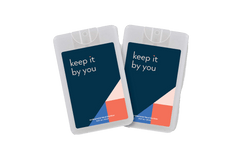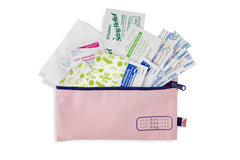
Dr. Navya Mysore defines mindfulness as the process of trying to maintain a moment by moment awareness of our thoughts, feelings and environment. She explains that when we are trying to practice mindfulness, our thoughts tune into the present moment rather than the past or the future.
Why is mindfulness important?
Mindfulness can help reduce anxiety and stress levels and improve relationships with family and friends too. By paying attention to your thoughts in the moment, you are not ruminating. This significantly reduces stress about the future. Once you start practicing mindfulness, you often notice that you are more productive and manage your time better through the day, as well.
What are the physical, emotional and psychological benefits of mindfulness?
By reducing our stress levels with mindfulness, we can improve our mental health and have more energy during the day to support ourselves. Better self-care practices and more emotional capacity, which in turn helps to boost our immune system and keep us healthier.
So, what’s the easiest way to introduce mindfulness to our younger children?
Start it with a hug! As you hug, take 3 deep breaths together to bring you back to the present moment.
The reality is, mindfulness practices that are good for your child are good for YOU too!

Some other age-appropriate ways for children to practice mindfulness:
1. Model taking 3 deep breaths and encourage your child to do the same.
You might say something like, “I’m going to slowly breathe in through my nose for as long as I can, and then push the air out of my mouth three times. Will you breathe with me?”
2. Talk about 3 things you’re grateful for that day.
You can even make this part of your bedtime routine every night, so it’s easy to regularly remember to take time for. Your children can share and YOU can share with them. Modeling for them has the bonus effect of giving you a moment to pause and reflect for yourself.
What are some other ways to tune into the present moment, rather than the past or the future?
Often it’s about being aware of your 5 senses--what you feel throughout your body, as well as what you see, smell, taste or hear.
Let’s say you’re washing your hands. Pause to notice the sensations you feel: your feet in contact with the floor, the feeling of the water pouring over your hands. As you create bubbles with the soap, feel each of your hands on the other--almost as if it were someone else’s hand on yours. Maybe breathing in more deeply to smell the soap, or listening to the sound the water makes as it pours.
And a few more ideas from Dr. Navya’s own mindfulness practice. She shares:
- I try to meditate at least once and I try twice a day, usually first thing in the morning and before bed time. With a toddler, it's not always feasible to get a longer meditation in but even 5 minutes can help!
- I have a gratitude text chain with some of my closest friends, and a few times a week we list what we are grateful for. Thinking about what you are grateful for requires you to reflect and practice mindfulness in that moment. It also helps to find the silver lining when you are having a tough day!
- I take deep breaths with my toddler often when when we hug. He's starting to understand the concept of a deep breath but often comes out like he's trying to blow his nose :P

More about Dr Navya:
Dr Navya Mysore is a family physician who is originally from Montreal, Canada and did her training at McGill University. She has a background in family medicine and women’s health and is passionate about women’s health issues and building relationships with her patients to focu on long-term health goals. She’s currently practicing in NYC and lives in Brooklyn with her family.
Photo courtesy of Mathilde Langavin via Unsplash




Leave a comment